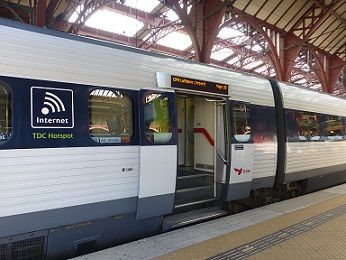One of the projects that has been on the ‘to do’ list for the Danish railtrack owners Banedanmark involves the system to protect people against electric shocks – or potential equalisation.
This refers to equalising conductive items such as metal casings, housings or mounting plates near high-voltage electrical cables, thus ensuring that the contact voltage encountered – for example, during a fault or through corrosion – is minimal and cannot cause accidents.
All things being equal
Equalising projects have been slated for Copenhagen’s main station, as well as stations in Glostrup and Buddinge, and are estimated to cost 5.3 million kroner, reports Ingeniøren.
Unfortunately, due to cost overruns in connection with the rebuilding of Ringsted Station, the equalising projects have been abandoned for an indefinite period – together with other projects to a total of 325 million kroner around the country.
READ ALSO: Government wants to slash railway budget – again
Banedanmark insists that despite this, the current installations are safe; potential equalisation is just an extra safety measure.
Down to earth
“All the installations in Banedanmark’s electric power systems are earthed, so that any fault is registered and the connection broken immediately, so the risk of electric shocks is minimised,” Banedanmark commented to Ingeniøren.
However, some experts disagree and feel that Banedanmark still needs to do something to rectify the situation. Electrical security specialist Ernst Boye Nielsen, who has worked as a consultant for Banedanmark in the past, says the lack of potential equalisation can have fatal consequences.
“Potential equalisation is a safety measure that ensures that if a fault occurs, people won’t get an electric shock before the power can be turned off,” he said.
“If the power can’t be turned off, for example if the switch is blocked, then their only protection is potential equalisation.”















